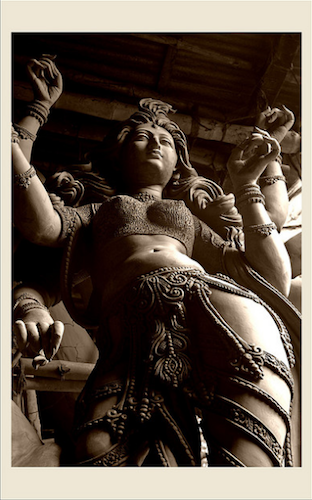Back when I first applied for college, I remember many scholarship applications asking me if I would be the first generation of my family to attend college.
I was.
Thinking about this recently, it led me to think of other “first generation”… instances. Why is this something to be so proud of? Some of my friends are the first generation of their family to own their own homes, others to become citizens of the United States, some are the first generation to be executives, others are the first to raise families outside the constraints of poverty, and the list goes on.
The pride in these monumental firsts have deep roots. Generations of love, hard work, and dedication to make life better for those who were, and are to come.
These “first generation” stories show that, not only is someone honoring generations passed, but also honoring and acknowledging that there are still paths to be forged. It means perseverance, success, and dedication to make a corner of the world a little brighter for generations to come. So, in writing and sharing my intention publicly, I hope to do the same.
I come from generations of strong women. However, I also come from generations of women who’ve all criticized their own bodies, as well as the bodies of others, and I’ve decided I want to be a part of a new generation. I’m dedicated to be the first woman in my family to actively denounce the notion that it’s not okay to love my body without stipulations, conditions, or boundaries. I am exactly who and how I need to be, right where I am.
This may change tomorrow, but I promise to love that too! This means, I will be the first woman in my family to promise never to call myself and/or anyone else “fat” as if to shame it into being or looking any differently. In doing so, I am going to urge you reading this to do the same. For generations, women in my family have accepted a notion that I am no longer willing to continue.
It was okay to be strong and independent, but “sometimes you had to suffer to be beautiful.”
That tiny phrase taught me that beauty was something contingent upon how much I had to suffer and strive to make it happen. It also eluded to me that this beauty was something no one ever truly achieved. My grandmother heard this phrase from her mother, my mother heard it from her mother, and my mother taught it to me.
So, I know this extends at least three generations. And until very recently, I was as guilty of perpetuating it as anyone else, but I don’t believe it any more. I can’t watch or listen any longer.
I learned far too young that the size of my waist was something directly correlated to my value as a person.
Most family gatherings and casual conversations eventually drifted off toward the newest diets and amount of weight gained or lost by so-and-so or what’s-her-name. We tested out various new diet recipes and tried to convince each other of the validity of the our latest diet or exercise regimen. I can even remember precisely how many “points” a certain salad counted for at cousin’s birthday party years ago. I’ve been following along these conversations my entire life.
It’s time for new conversations, because believing that the appearance of our bodies determines our worthiness or value has become generational.
Recently, while visiting my 81-year-old grandmother, we sat on her porch thumbing through the pages of magazines discussing all sorts of existential topics. Suddenly, I heard her sigh as she paused on a page with a woman wearing a stylish, navy blue, A-line dress. I was admiring the dress fondly as I love 50’s-60’s retro styles. She, however, voiced a serious concern, “Ah, we’re back to this again?” she lamented.
“I remember the first time these dress styles were fashionable. Suddenly with one trend, women had no reason to watch their figures at all anymore. They could just hide behind the flowing fabric, and it was such a shame.”
I wonder if my jaw hit the floor, or if I just sat there completely stunned. I realized that I could no longer blame just the media for its portrayal of women. We’ve been continuing this “obligation” of ideal women for generations, we’ve embodied it through our ancestors. Now I knew just one more reason why my own recovery from anorexia had been. It wasn’t until I discovered the body-honoring practices of yoga and Nia that I could fully recover and fully re-inhabit a new, heavier body.
My recovery journey had been treacherous and through relapses in and out of hospitals for many years. The realization that an underlying twinge of hatred toward our bodies has been present in my family for generations, but I vowed in that moment to forge a new path. I’ve become part of the first generation to truly practice self-love.
This self-love includes loving, not just tolerating, the amazing and beautiful body I inhabit. I wonder how many other women like me, have the nagging conscience, influenced by generations of subtle expectations, telling them that as women, we always must be watching our figures?
For God’s sake! My 80-something-year-old grandmother is still worried about it! Crap!
I want to be loving every wrinkle and gray hair at 81, not worried about my figure! Even now, the only “watching of my figure” that I want to do is admiring and appreciating the changes of my body as it supports and sustains my adventurous life! So, yes. I am officially part of the first generation of those committed to never shaming myself or others into comparing the size of thighs to worthiness of love, respect, honor, time, or space.
My body is what it is, and so is yours. Yoga and Nia have taught me to see my body, and others’ bodies with new eyes. These eyes see beauty with gratitude. My thighs are massive, but so are the hills that I climb every day on my bike.
Since I absolutely love biking, I also love the thighs that help me to do it. No big thighs, no big bike rides. I know that loving my body makes me want to care for it with good food and exercise like dancing. I prefer to talk about the size of my love, not worry about whether that love comes with handles or not. 🙂 Nourishing the body with good, nutritious food and exercise is important, but nourishing it with love and admiration for the way it is, and the way it moves me through this life is just as important.
I refuse to deprive my body of this love.
I refuse to be part of the generations of women in my family through the years who taught me strength and independence, but secretly always criticized their bodies. Never will my niece hear me talking about a diet or calories at a family function. In fact, she will only hear me talk about my body, or anyone else’s body in admiration.
Perhaps I am the first one in my family to have suffered with and recovered from an eating disorder, but I want to be the last. I want to be more than recovered. I’m joining the generation of dancing, body-loving revolutionaries who celebrate joy in moving the body to the rhythm of life.
Love elephant and want to go steady?
Sign up for our (curated) daily and weekly newsletters!
Editor: Renée Picard
Photo: soumya at Flickr







Read 3 comments and reply